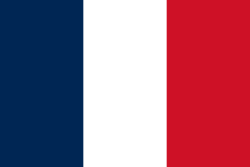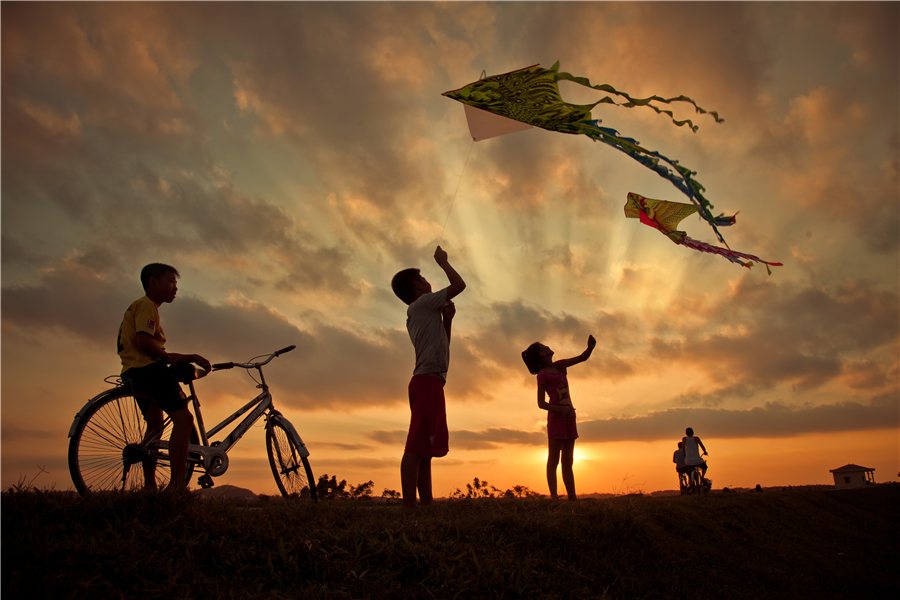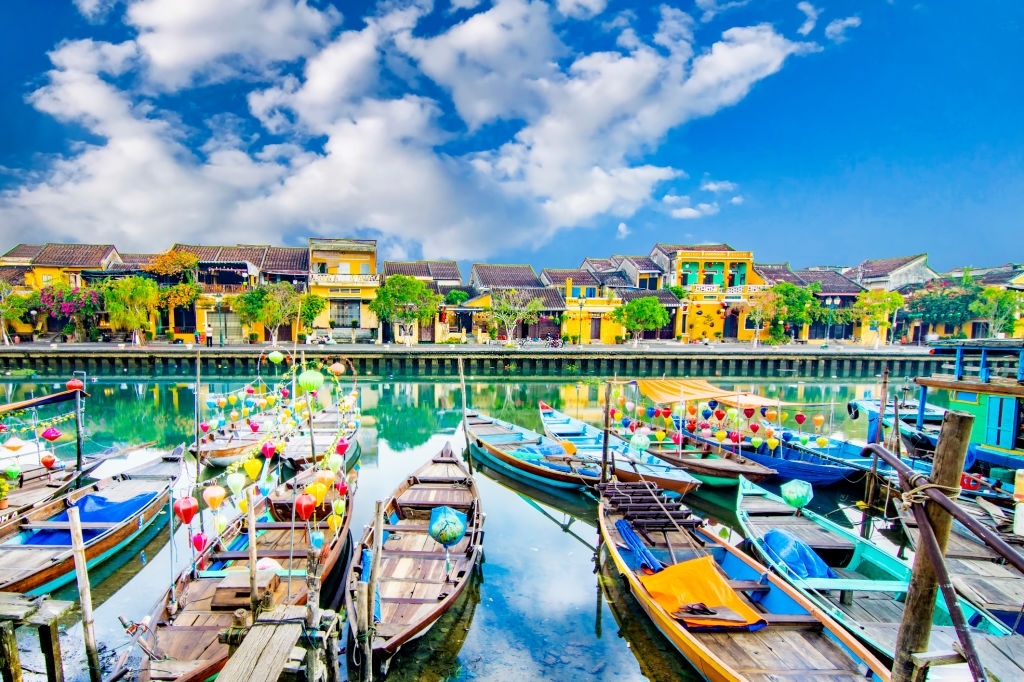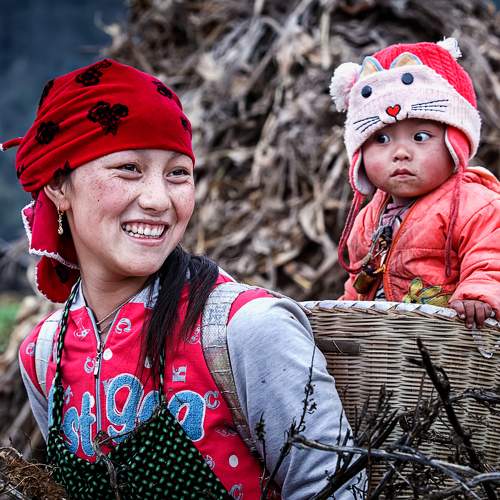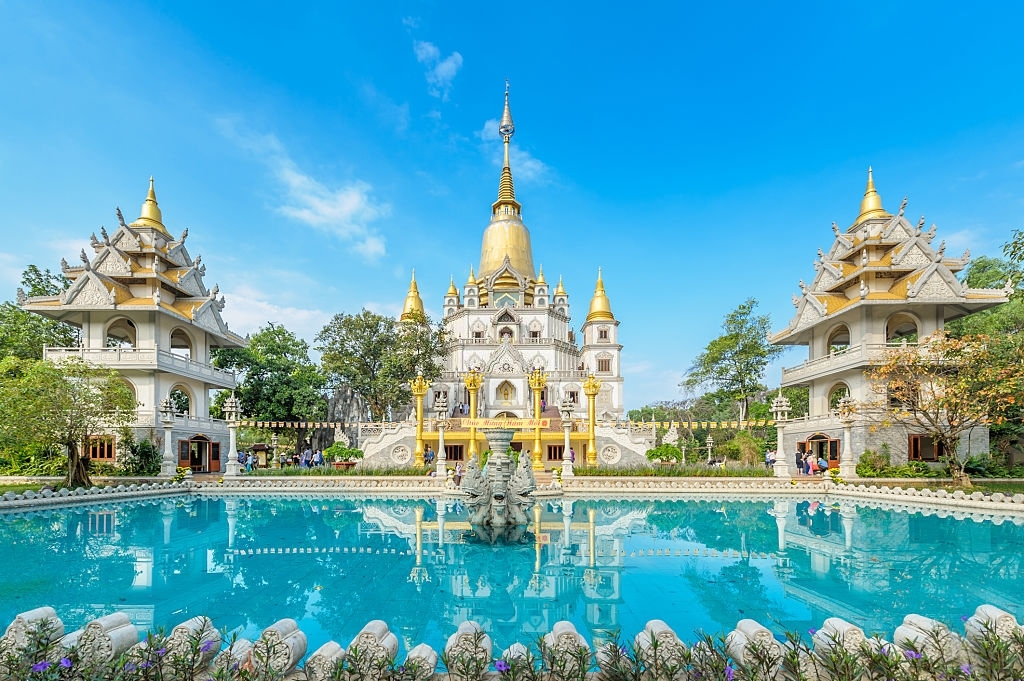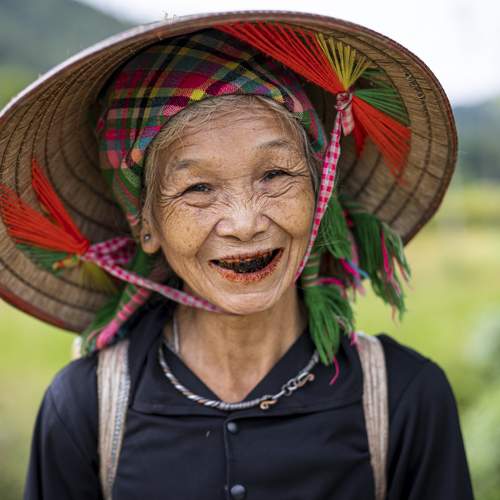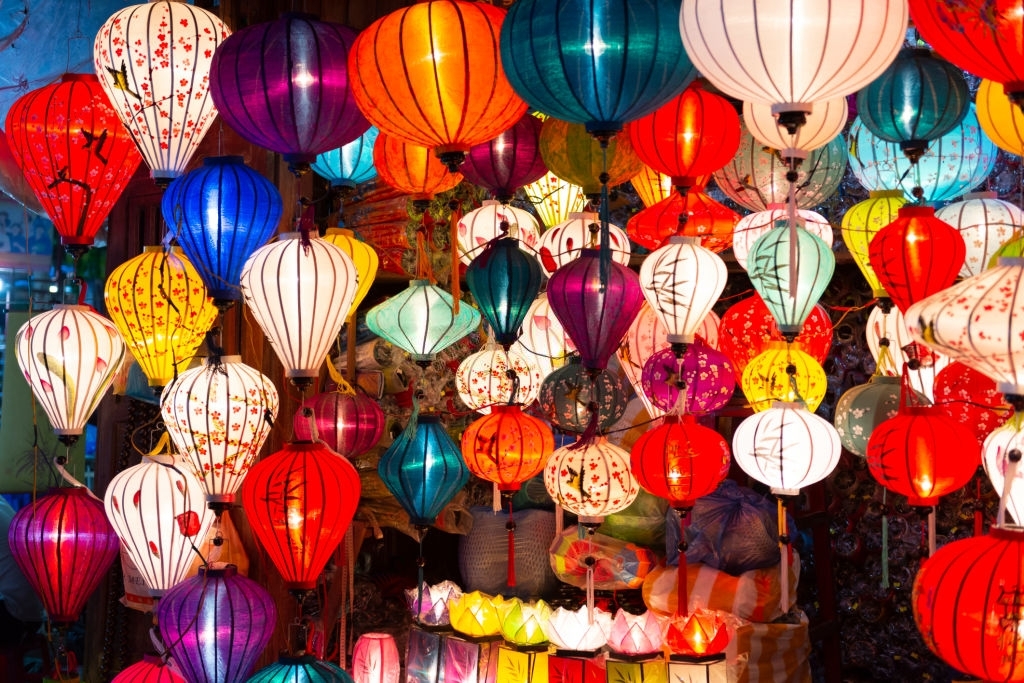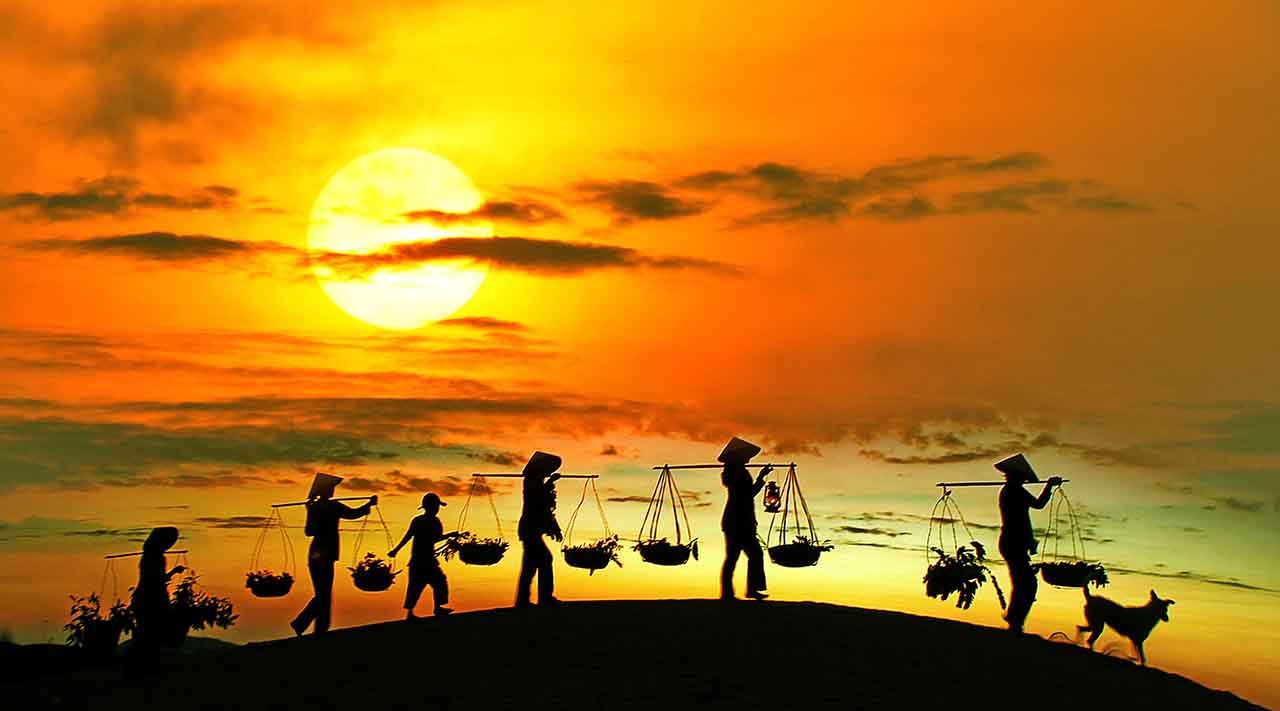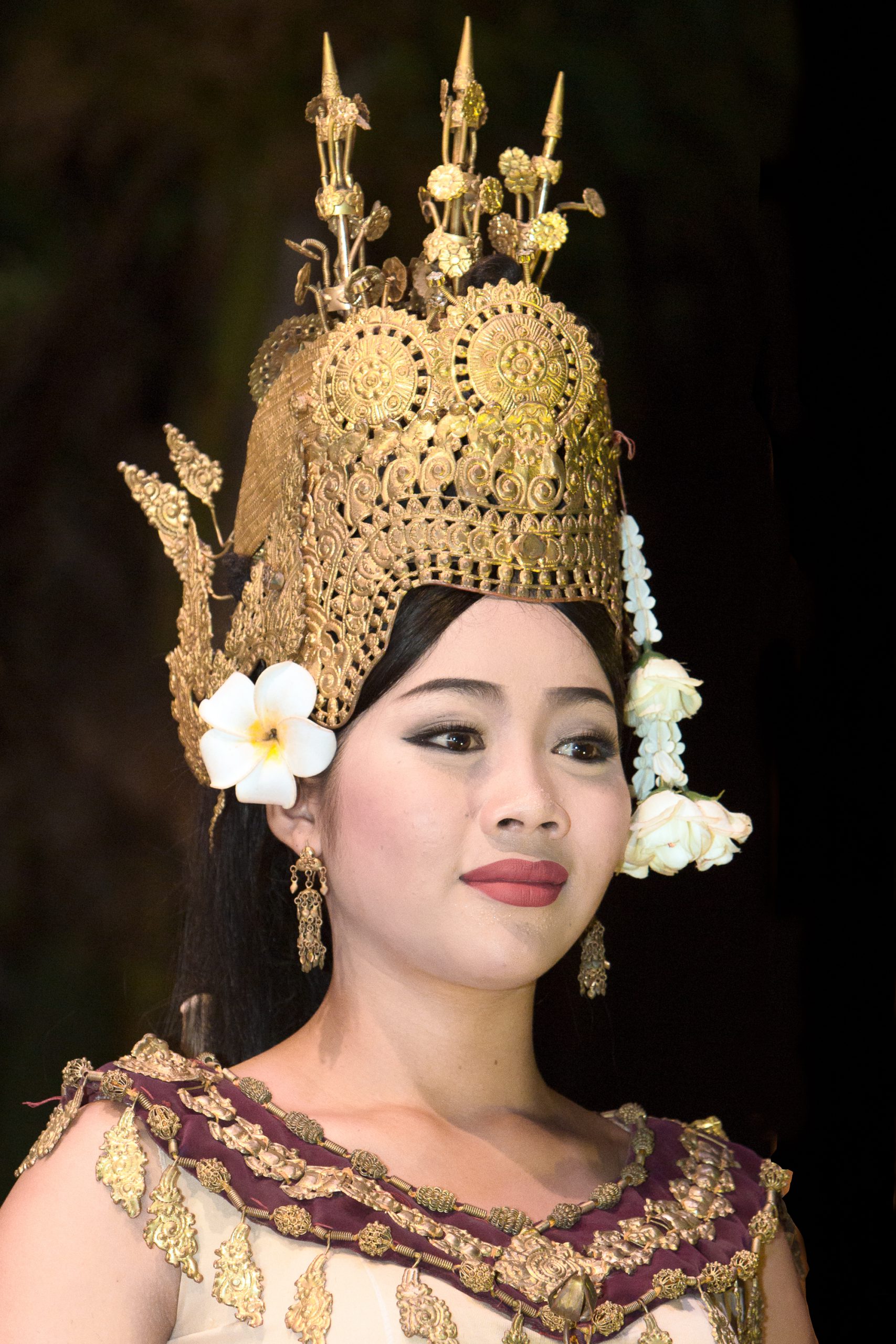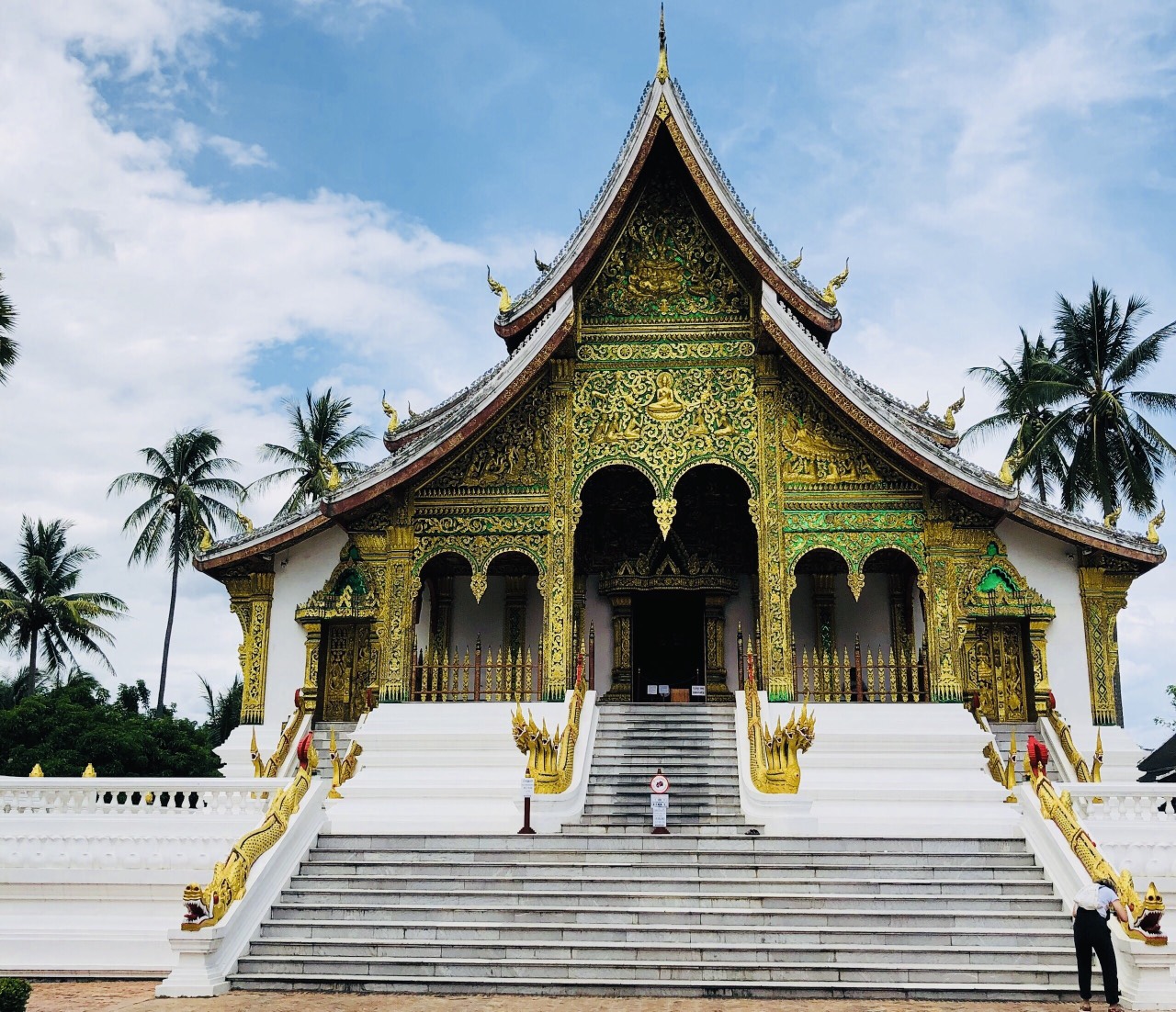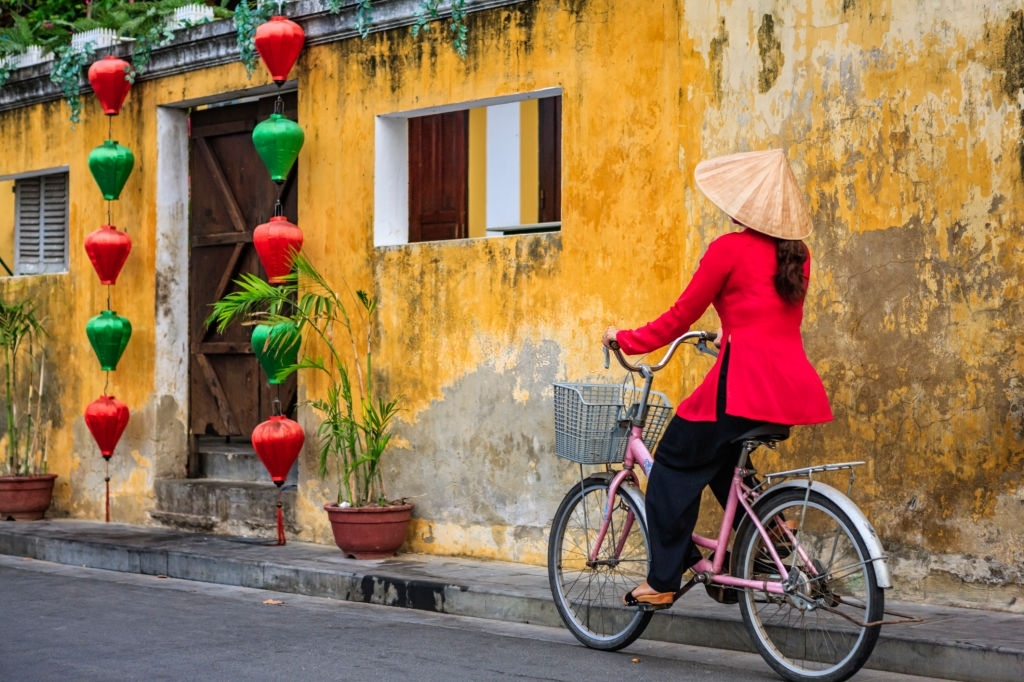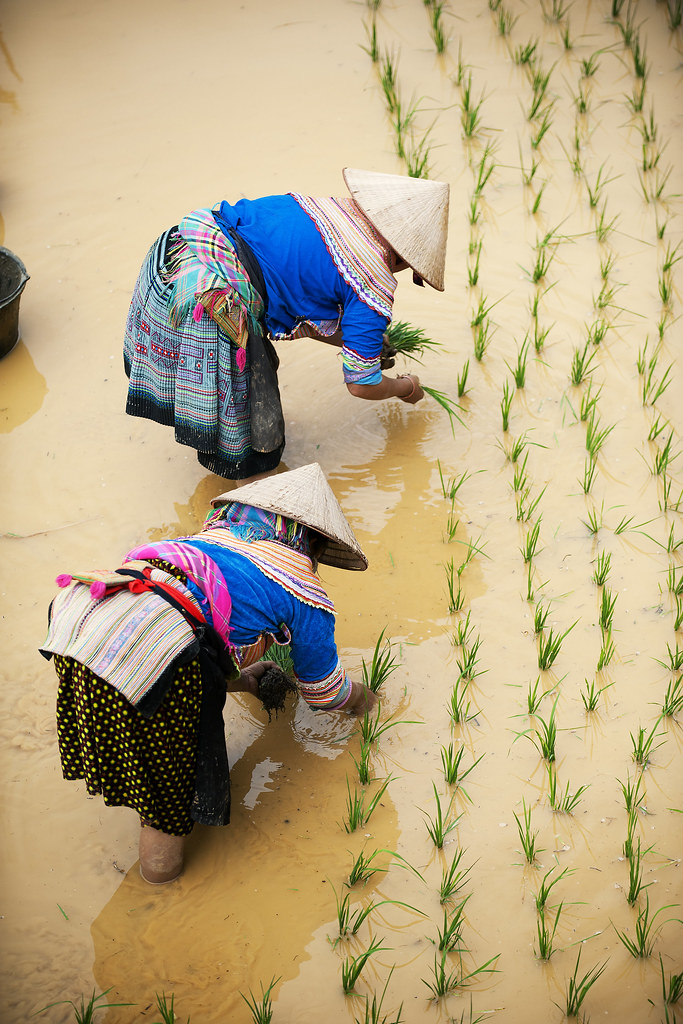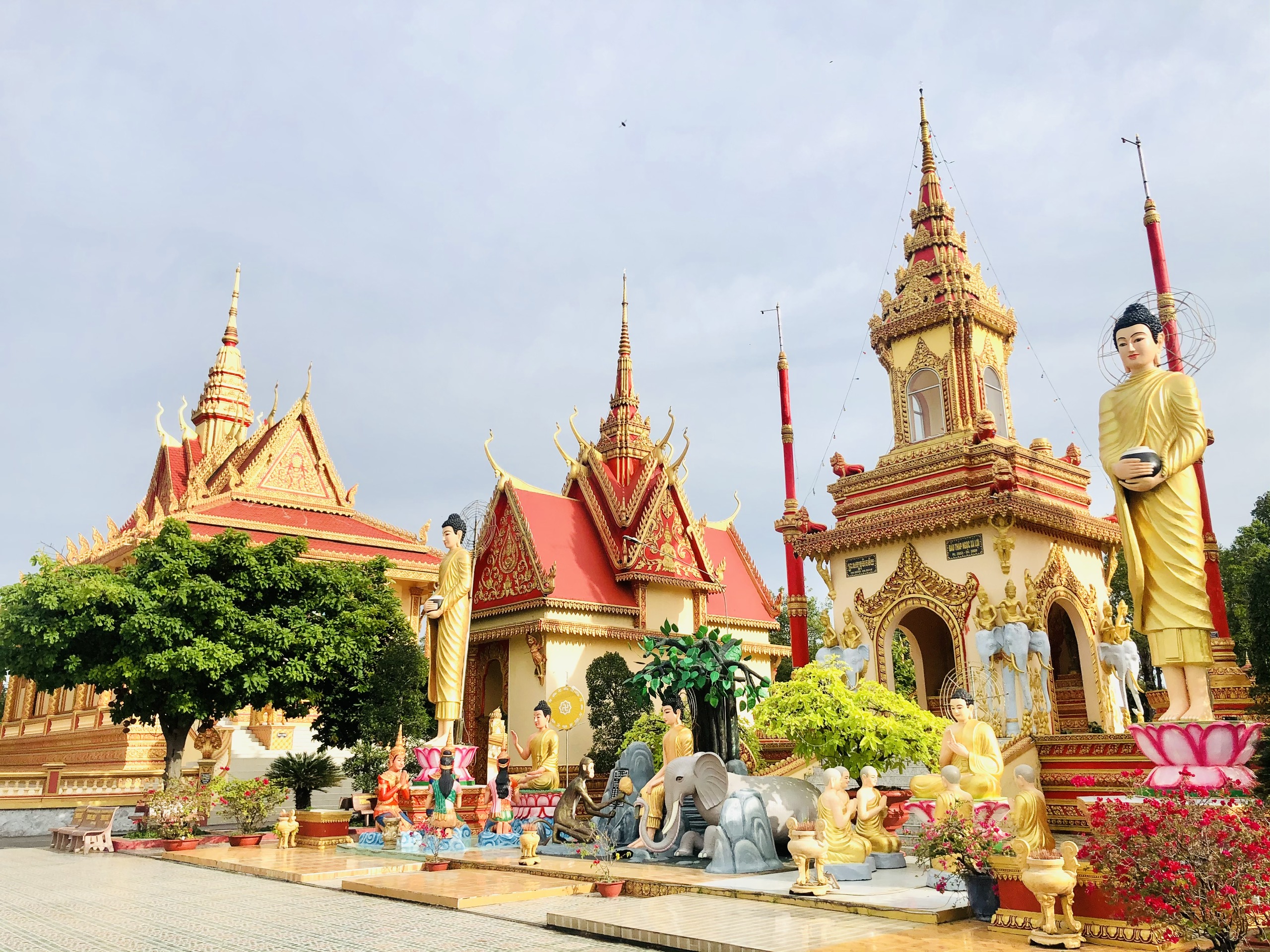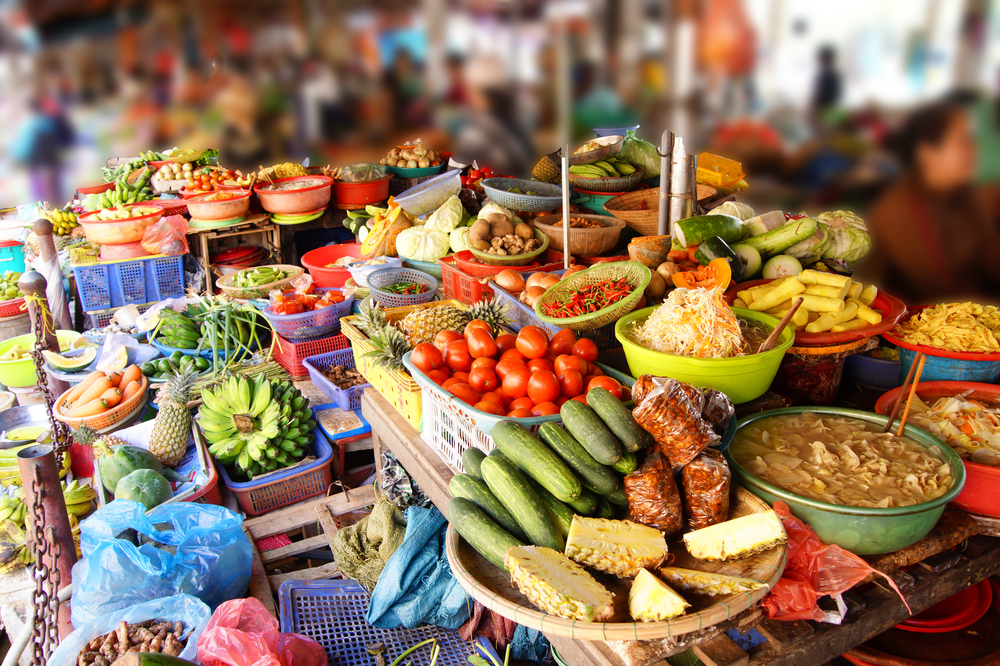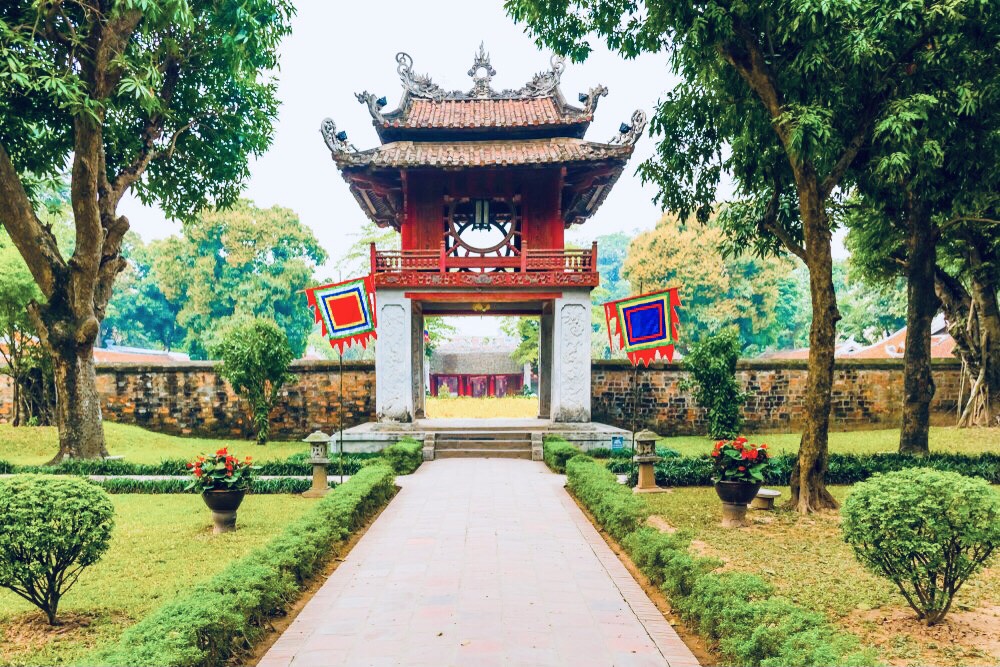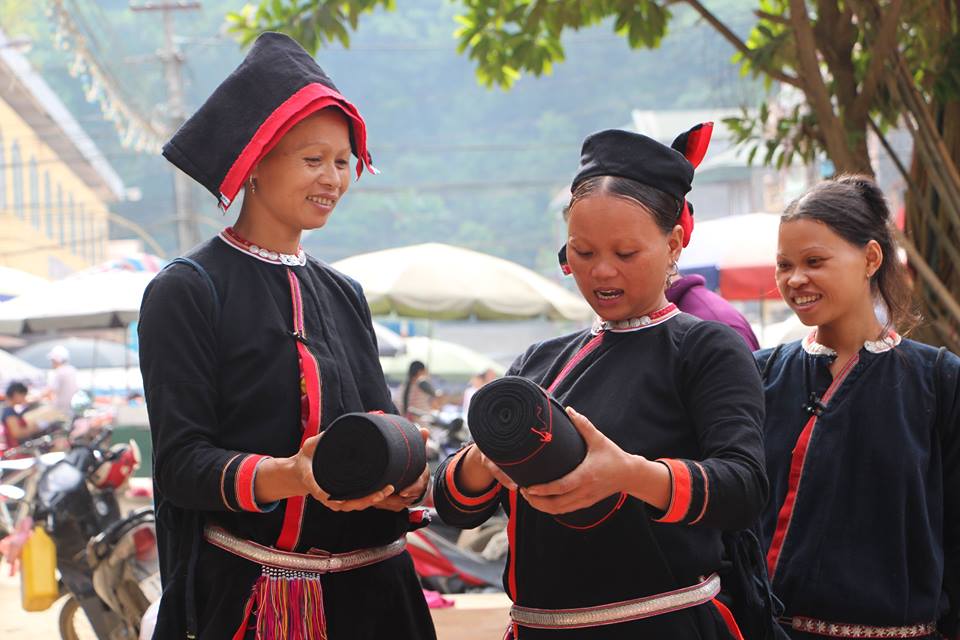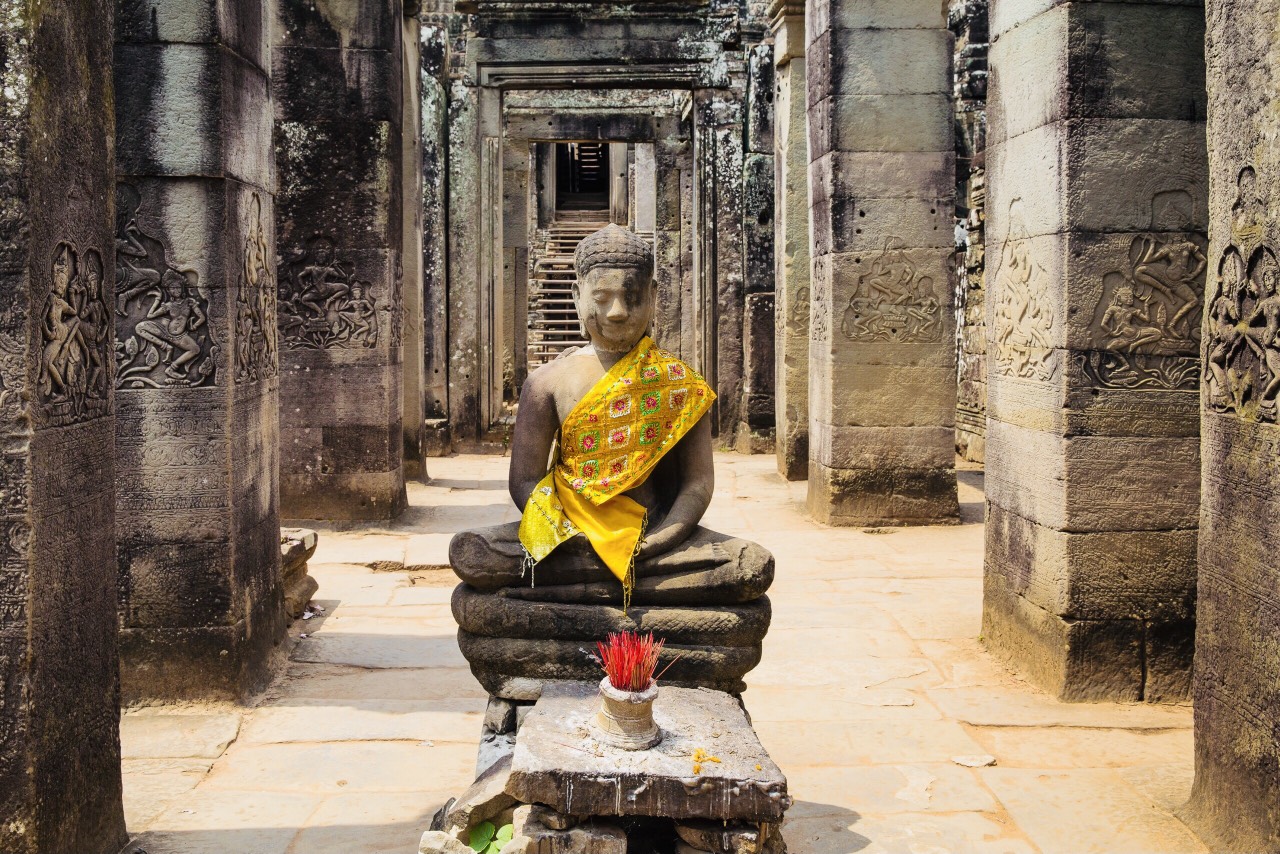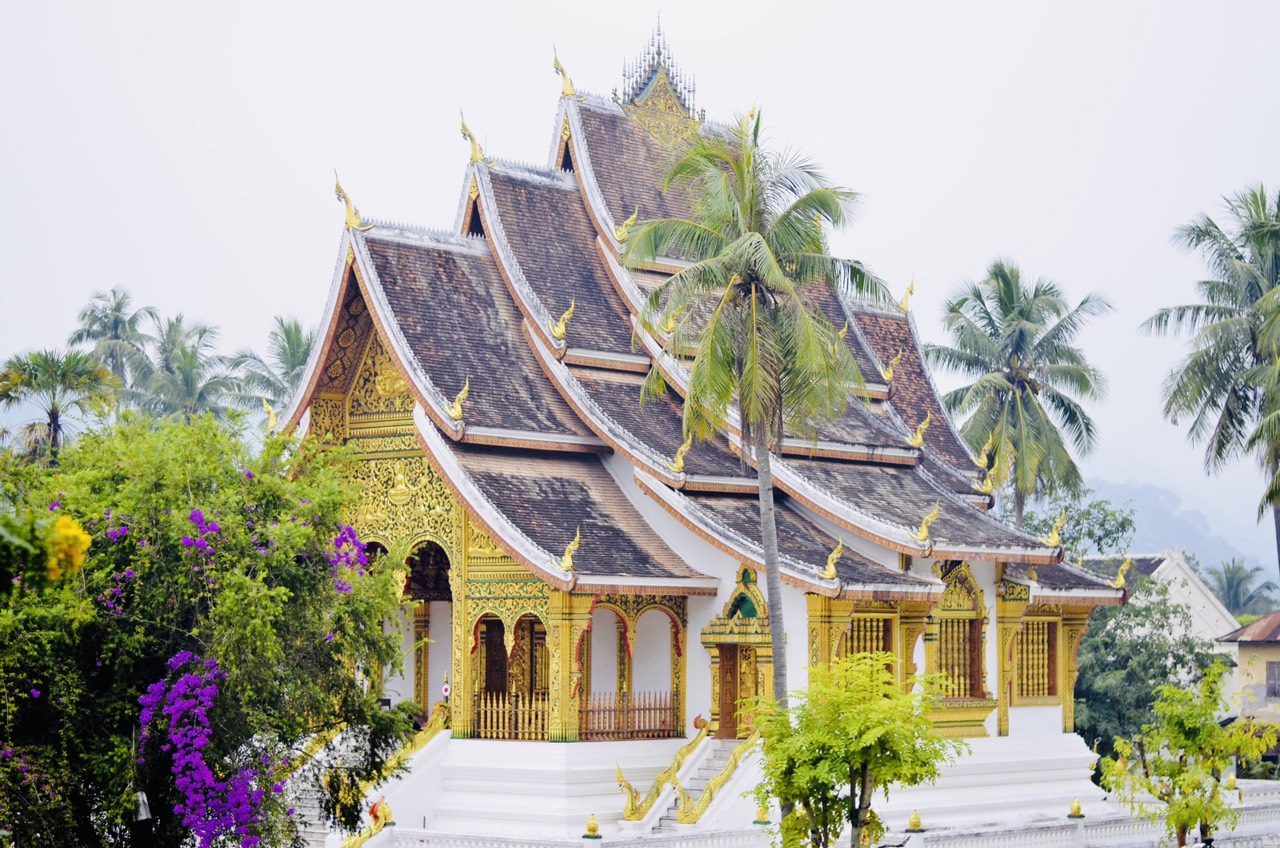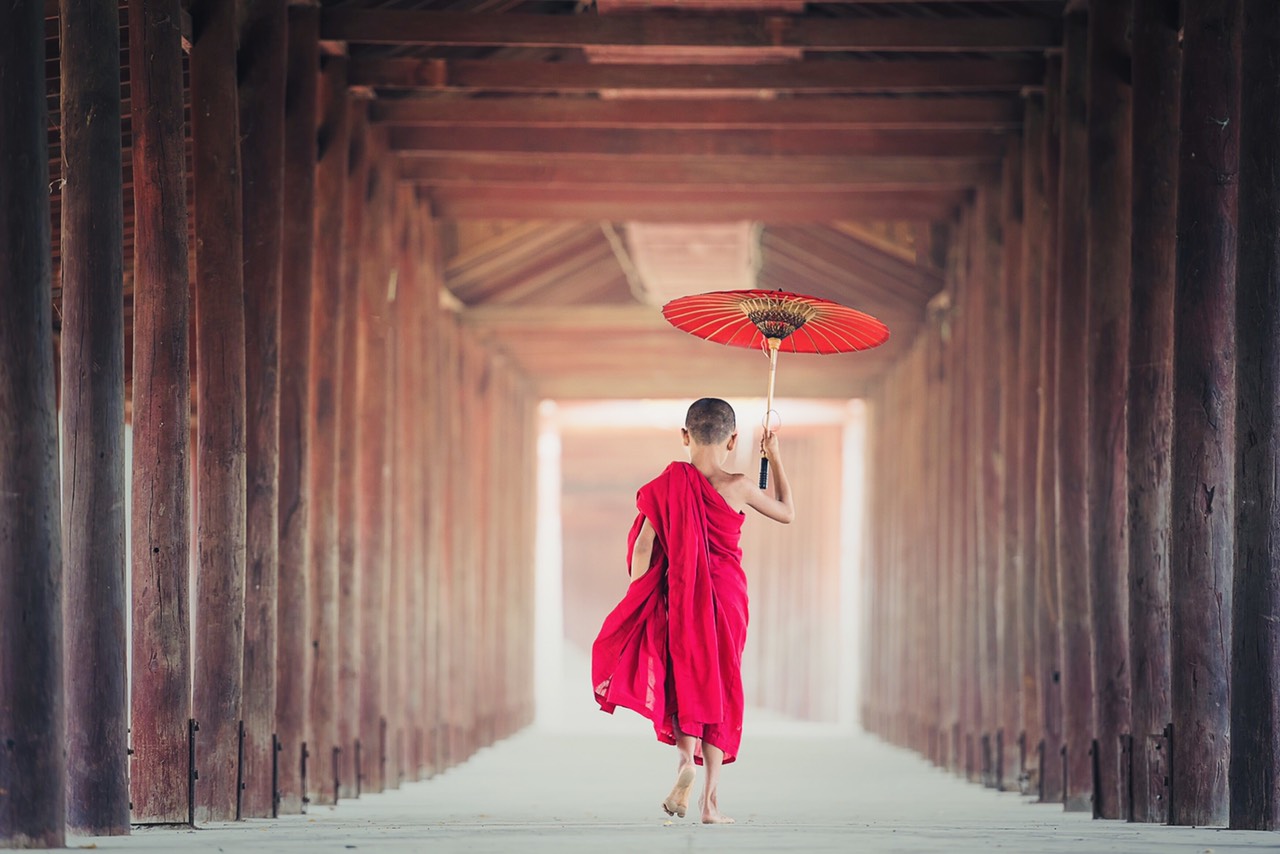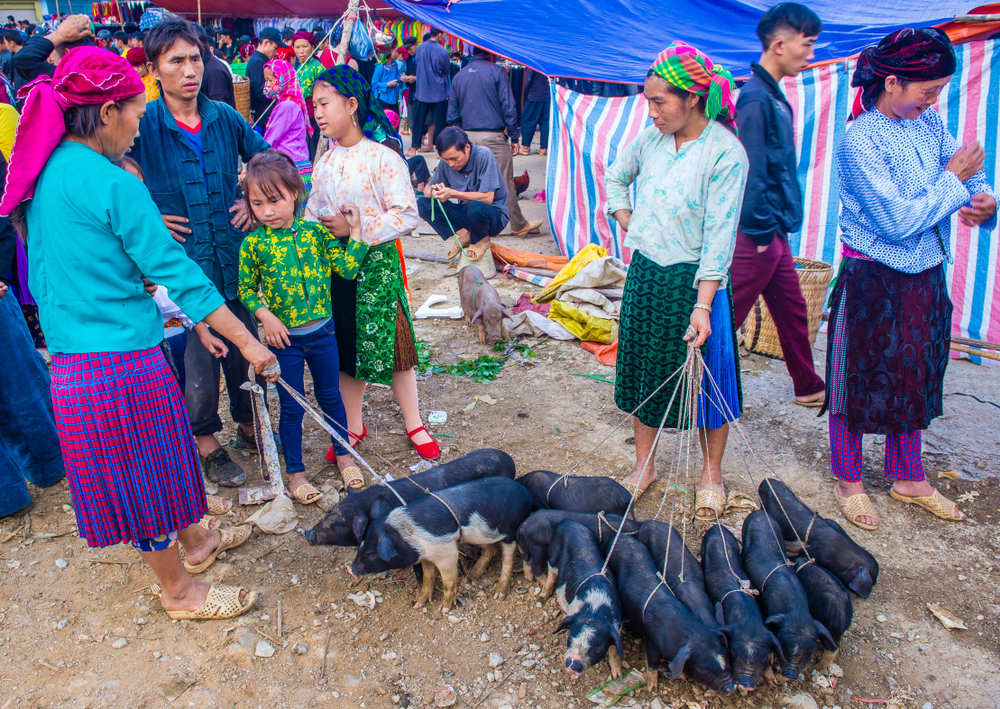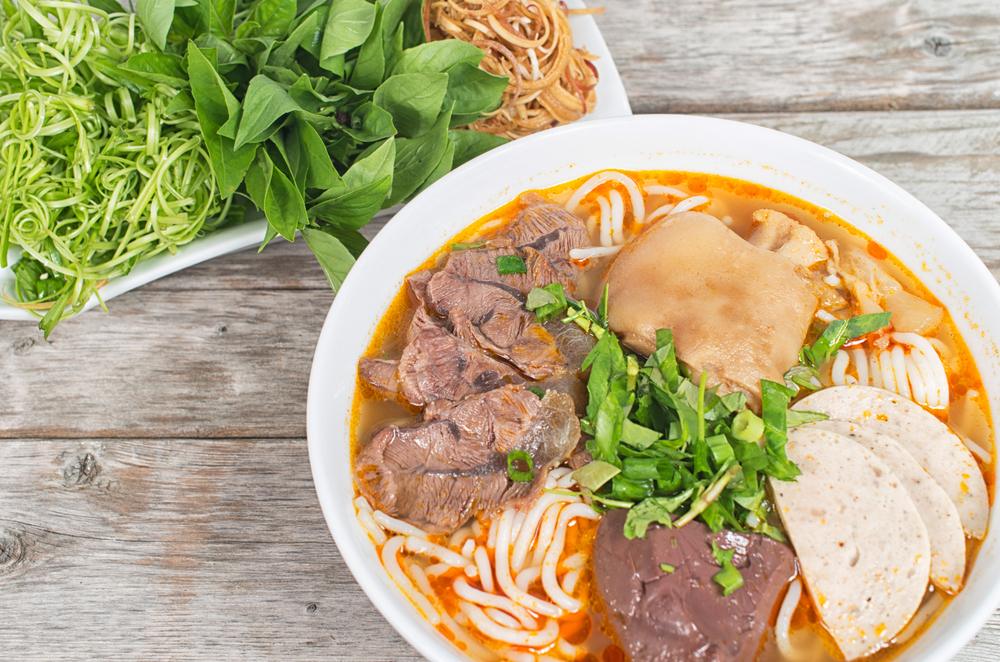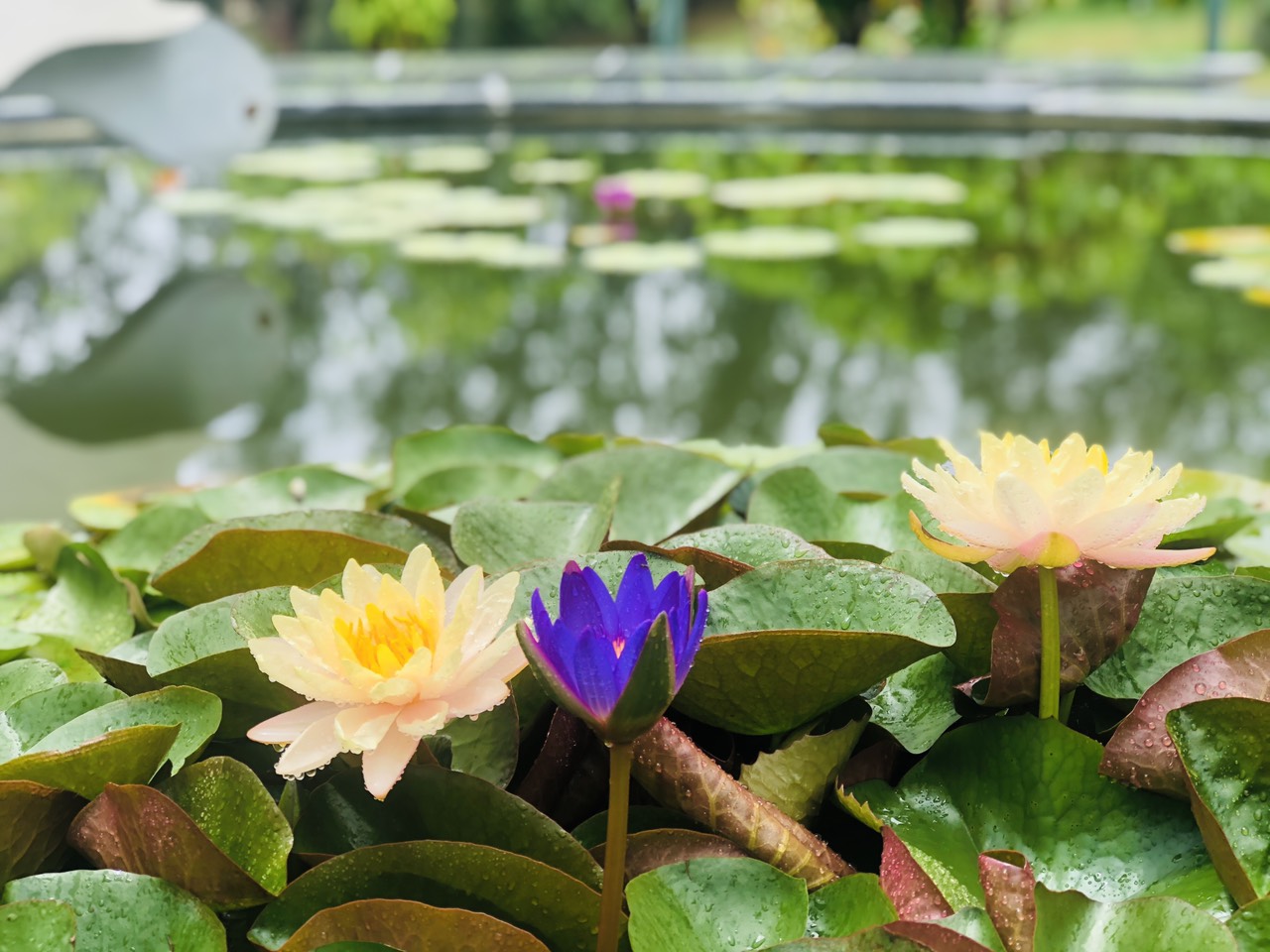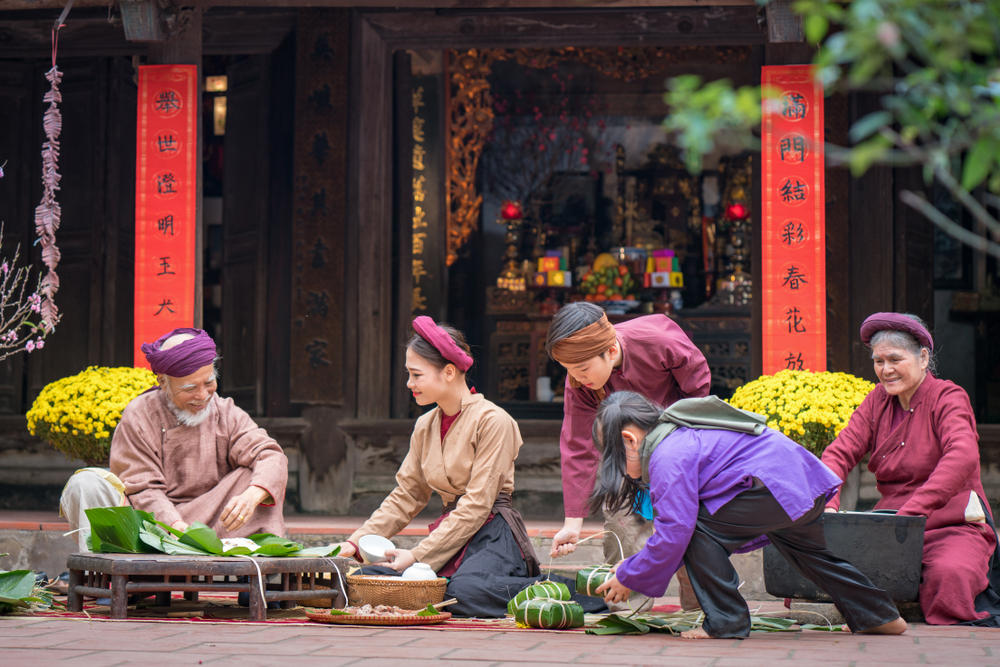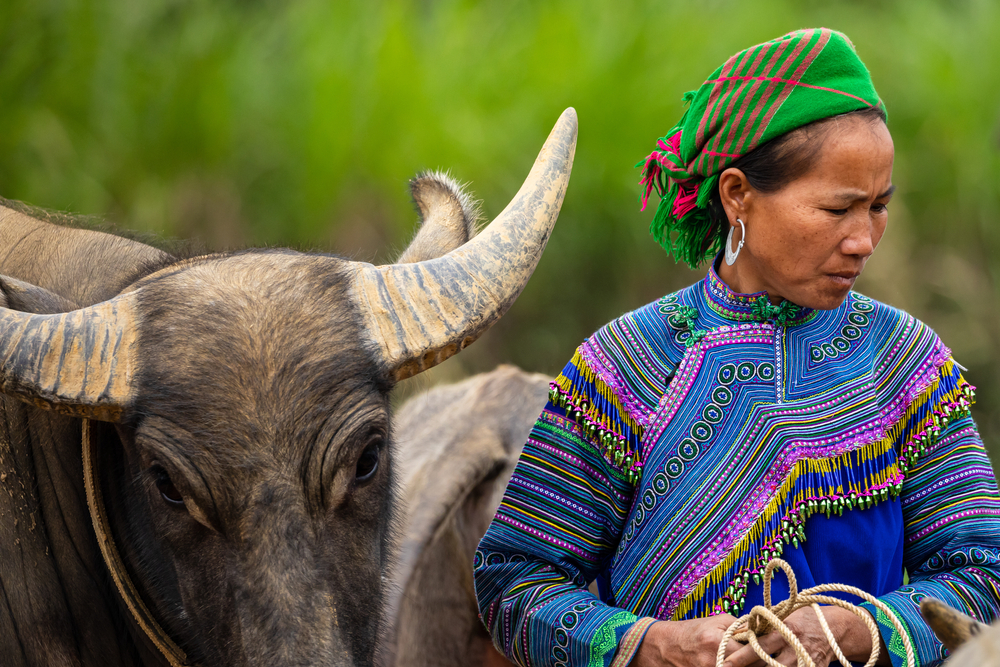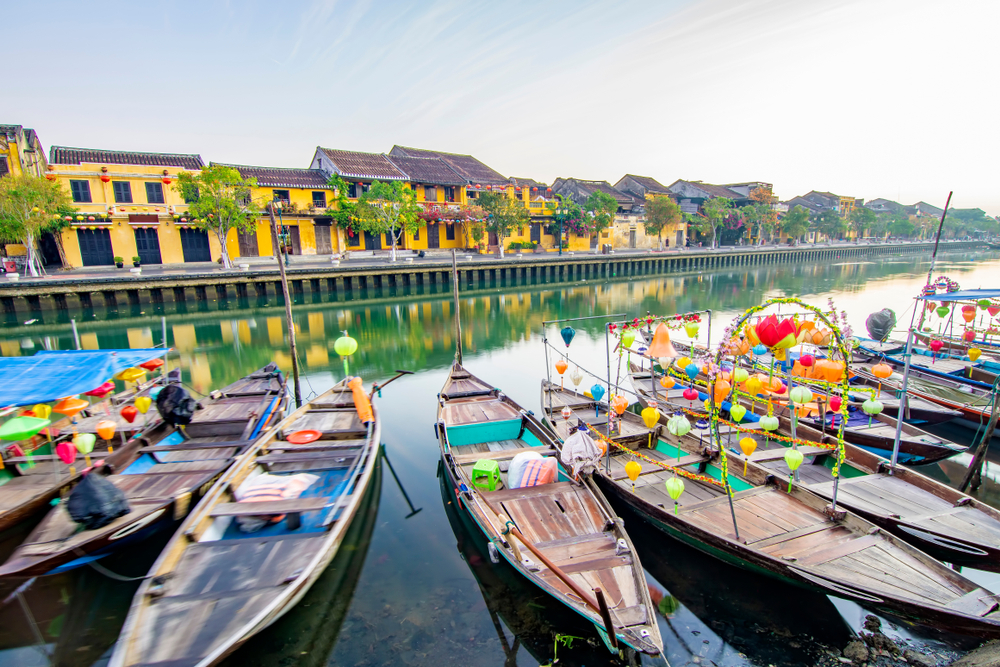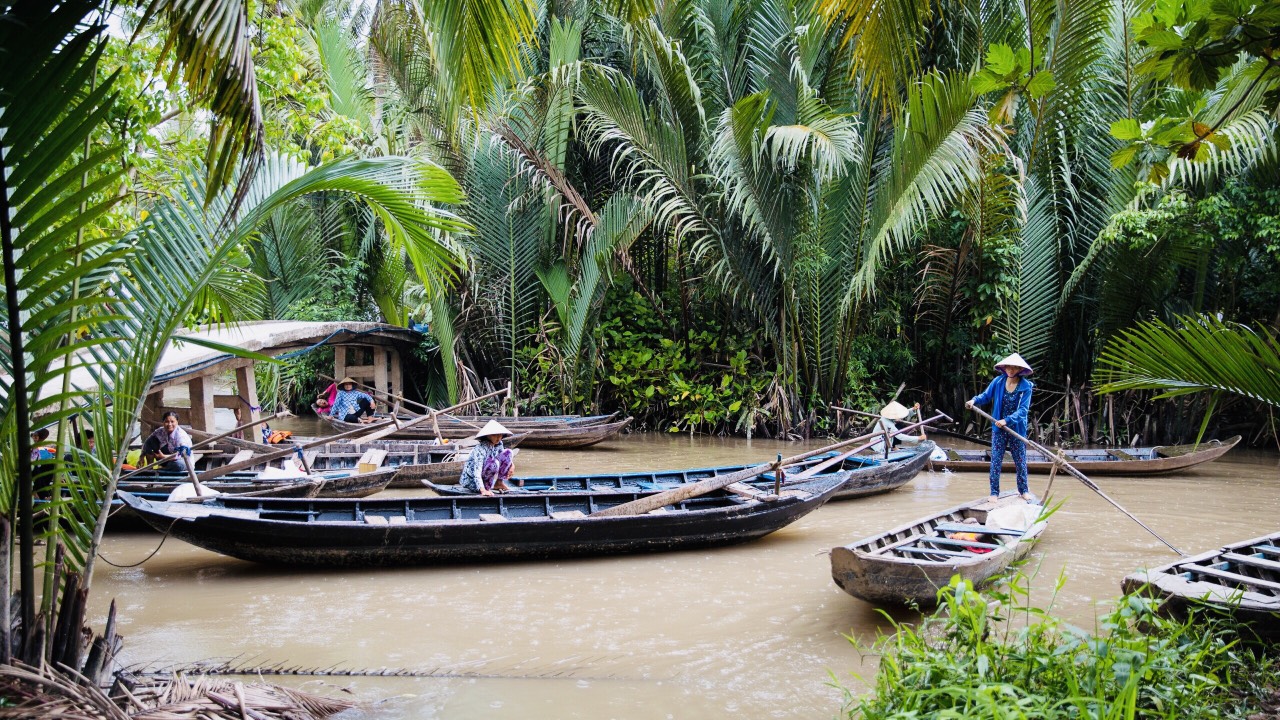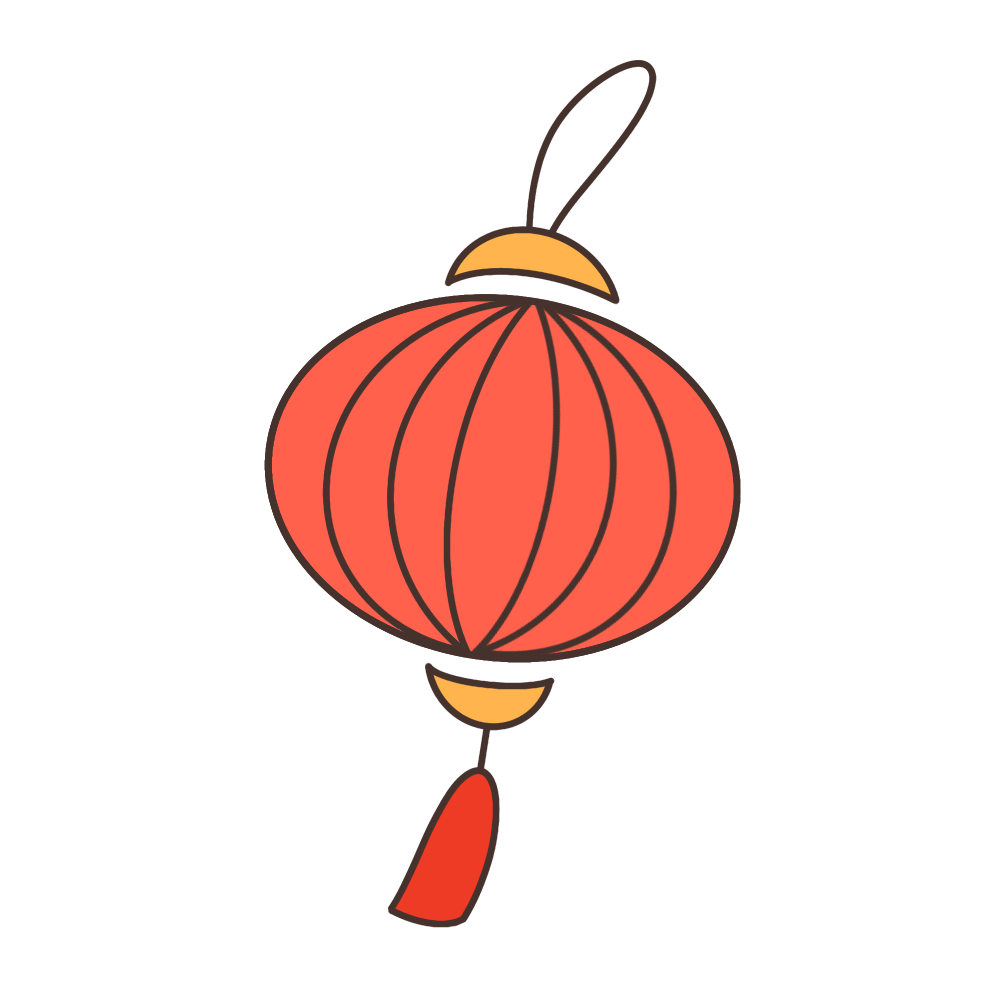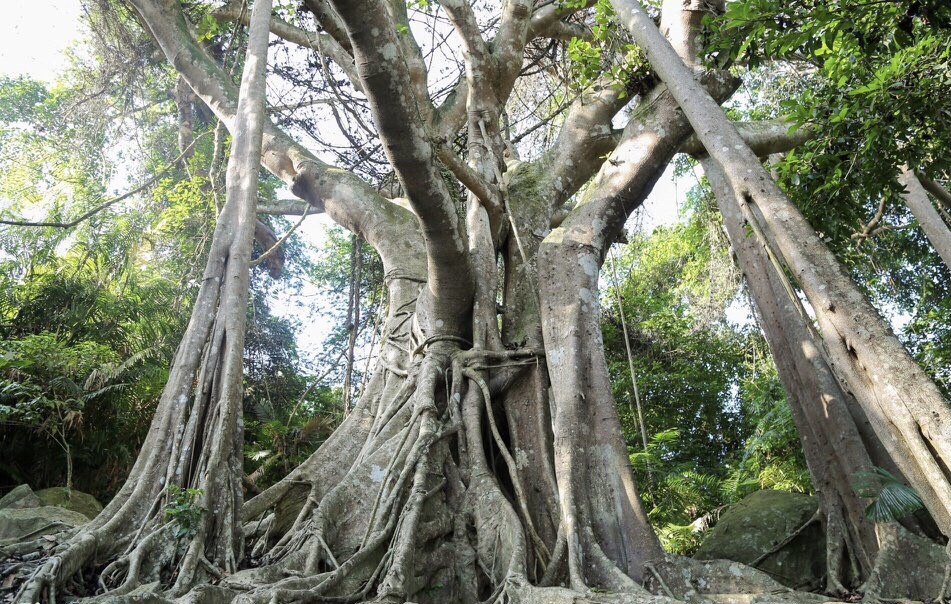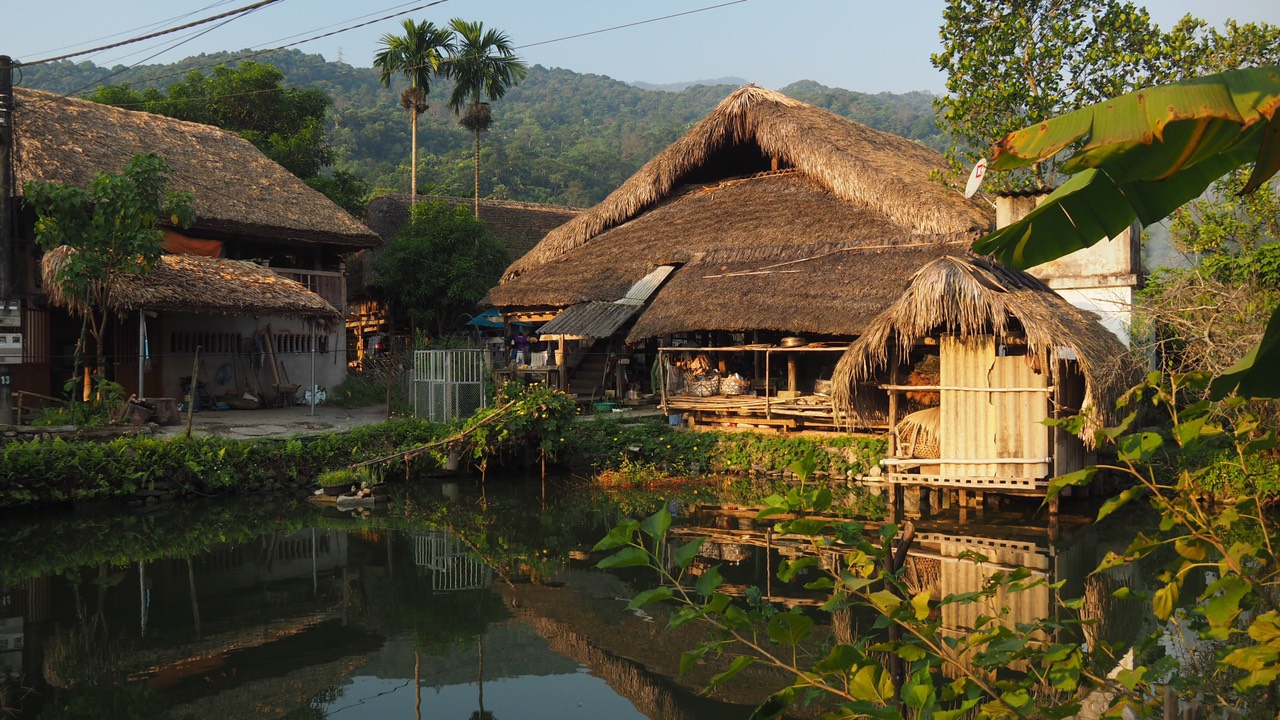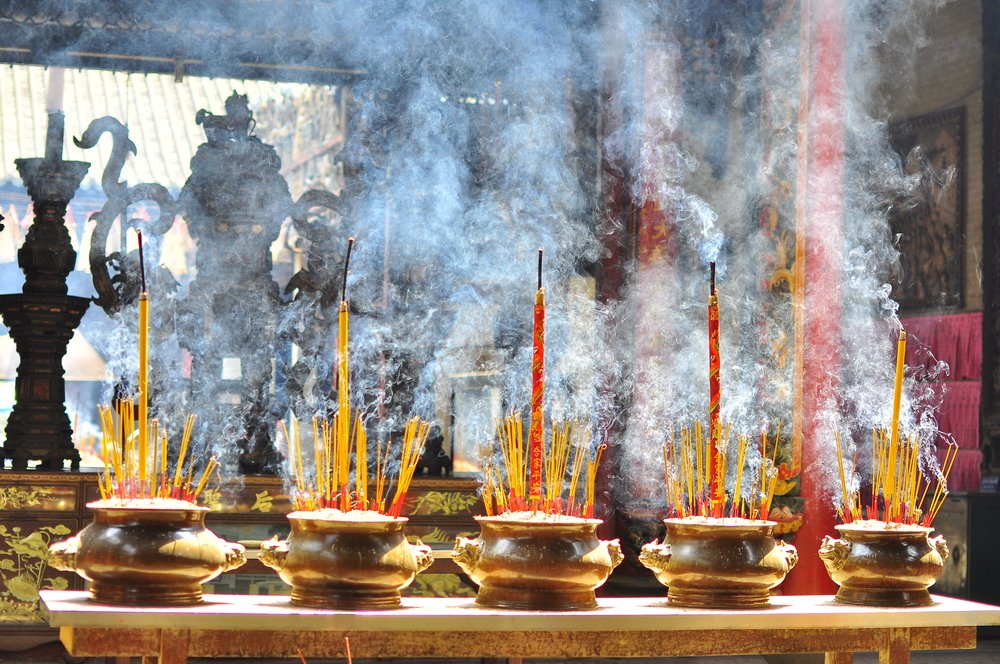
In Vietnam, the ancestor worship is an integral part of the country’s culture, showing respect for the past and hope for the future.
It results from an ancient belief, that of a visible world, that of the living, and an invisible world, that of the deceased.
In the invisible world evolve the spirits: genies, protective spirits, those of historical or mythological heroes and also those of demons, wandering souls… and of course those of the deceased of the family.
These worlds influence each other, for example, the spirit of a deceased person can give its protection to a project, personal, professional, real estate, etc. In return, the living must make sure to honor the spirits they invoke and of course that of the ancestors.
The Vietnamese believe that their deceased are still alive in the afterlife in the company of genies, those who protect the home for example, their souls therefore have the ability to intervene in the lives of the living.
Also, the majority of Vietnamese families have an ancestor altar.
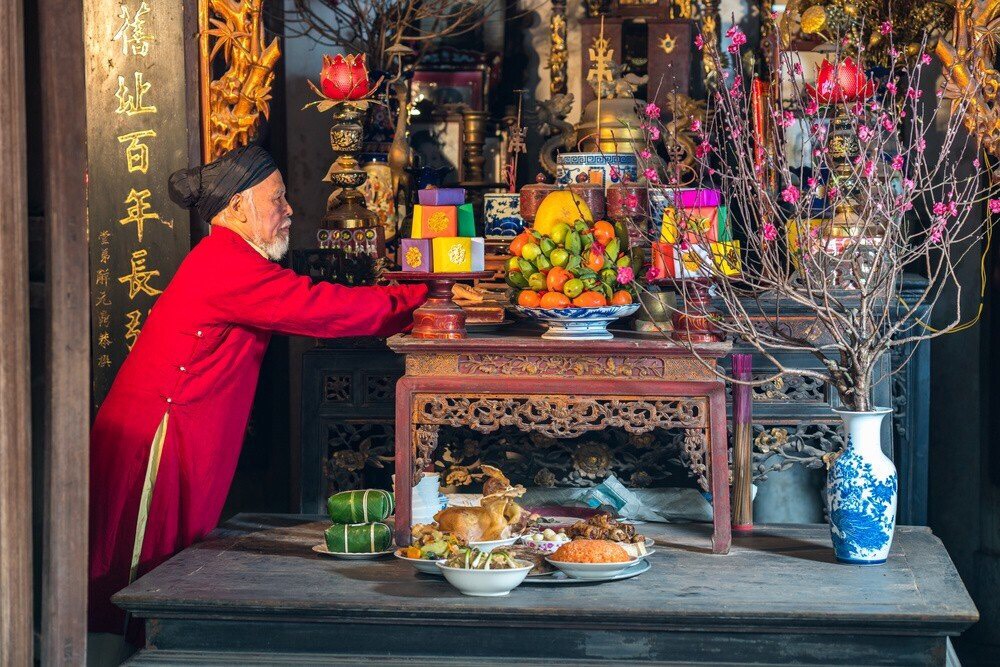
The altar of the ancestors is the place where the souls of the deceased return to the house with their living.
This is why the great events of the family are decided or celebrated in front of the altar, under the benevolent supervision of the ancestors, such as: marriage, the anniversary of the deceased (traditionally before the arrival of the French, only the anniversary of the deceased was celebrated, mainly that of their death, today the day of birth of the living is also celebrated), the Lunar New Year (Tet)….
The Tet is the most important festival of the year which gathers the family in front of the altar. It is the occasion for the descendants to invite the souls of their ancestors to join the celebration.
The festival of the ancestors, Vu Lan, also occupies a primordial place.
The size of the altar varies according to the social and financial situation of the family. It will be made of wood, earthenware, bronze or precious materials for the richest. It must be located in the house, in a high, clean and respectful place, often in the main room, sometimes a high room is dedicated to it. It should preferably face south, the direction of creativity and energy.
On each altar there should be : three small pots of incense, the largest will be central and dedicated to the Buddha, on either side, that of the geniuses of the household and that of the ancestors, two vases of flowers, the “tablets” of the deceased or deceased, two beautiful plates to present the favorite offerings of the deceased – a bottle of wine, alcohol, a set of teapots and cups, candles and incense sticks (the flame and smoke by rising connect the world of the living to that of the departed).
On the tablets were inscribed the qualities of the deceased, his name, the exact times and dates of his birth and death, today they are replaced by a photo of each deceased.
The incense sticks are considered as the bridge connecting 2 worlds: the world of the dead, genies in the sky and the world of the living down on earth.
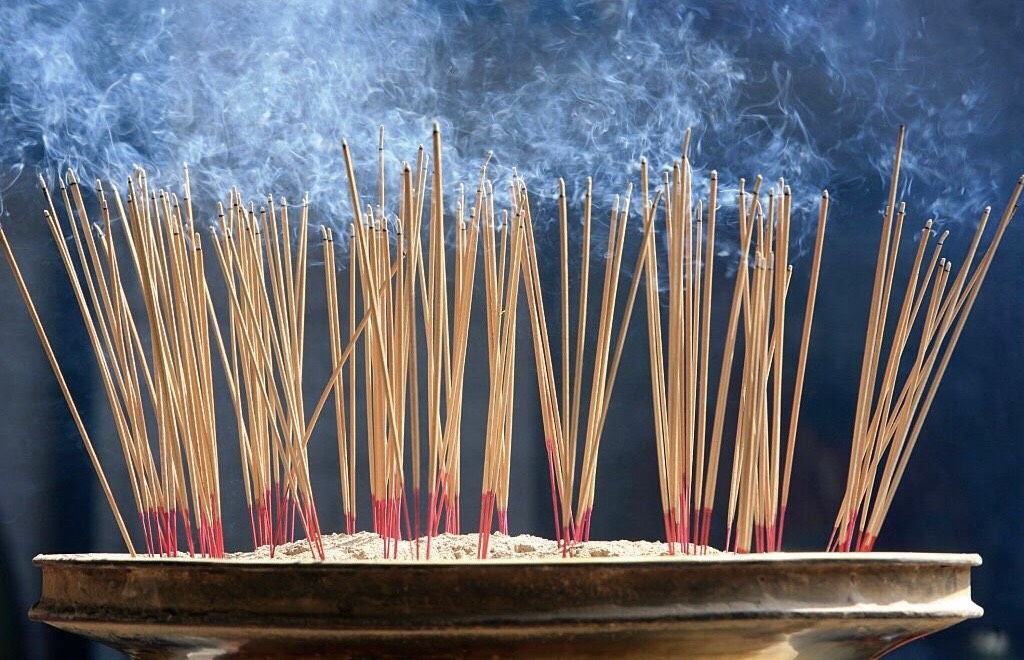
In the past, in order to contact their deceased and send them messages, the living from below lit fire, its smoke rising upwards, towards the sky, carried their messages, their wishes, as well as their desires, often wishes for a good harvest, happiness and prosperity, to their deceased.
Incense sticks have progressively replaced fire, while keeping the same power as a vehicle: its smoke rises upwards, ensuring the link between the two worlds.
The cult is generally assumed by the sons, the daughters being authorized to attend the ancestors’ altar only if they have no brothers.
It is a curse for a Vietnamese to die without leaving children, since, having no altar to return among the living, his soul will be condemned to wander… Wandering souls (cô hôn in Vietnamese), are the lonely or forgotten dead.
In order to appease them, they are celebrated once a year, outside the houses, while paying homage to the ancestors (Vu Lan festival).
On the 15th day of the 7th lunar month, wandering souls are allowed to visit the living.
All families are invited to offer food in the form of offerings (rice soup, cakes, sweets, fruits…).
The custom is also to buy objects made of paper (shoes, bicycles, villas, cell phones, money…) called votive papers. These votive papers, prayer papers, are divided into small parts to satisfy all the wandering souls coming to visit the living. They will be burned on the street, outside, the smoke will lead the gifts to the souls which will be thus provided with all the goods for one whole year.
On this same day the ancestors of the house will also be celebrated in front of the altar, inside, with offerings of the same type as for the wandering souls.
The offerings of the ancestors’ altar are varied: 5 fruits (especially for Tet), flowers, alcohol, incense, pastries…they are presented on the 15th day and the 30th day of each lunar month.
It is advisable to maintain the altar often, it must remain clean, the water must be clear, the fruits fresh and the flowers changed.
